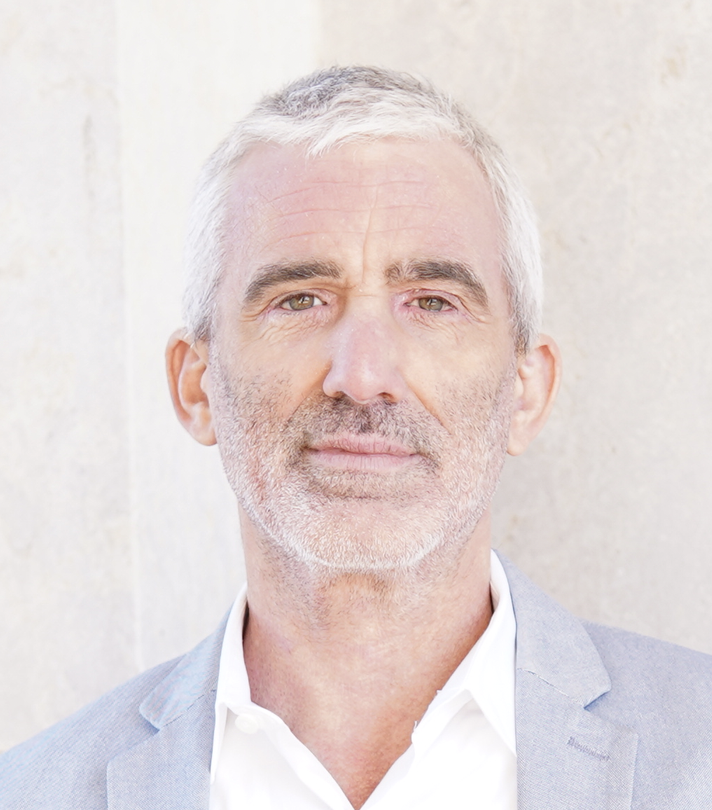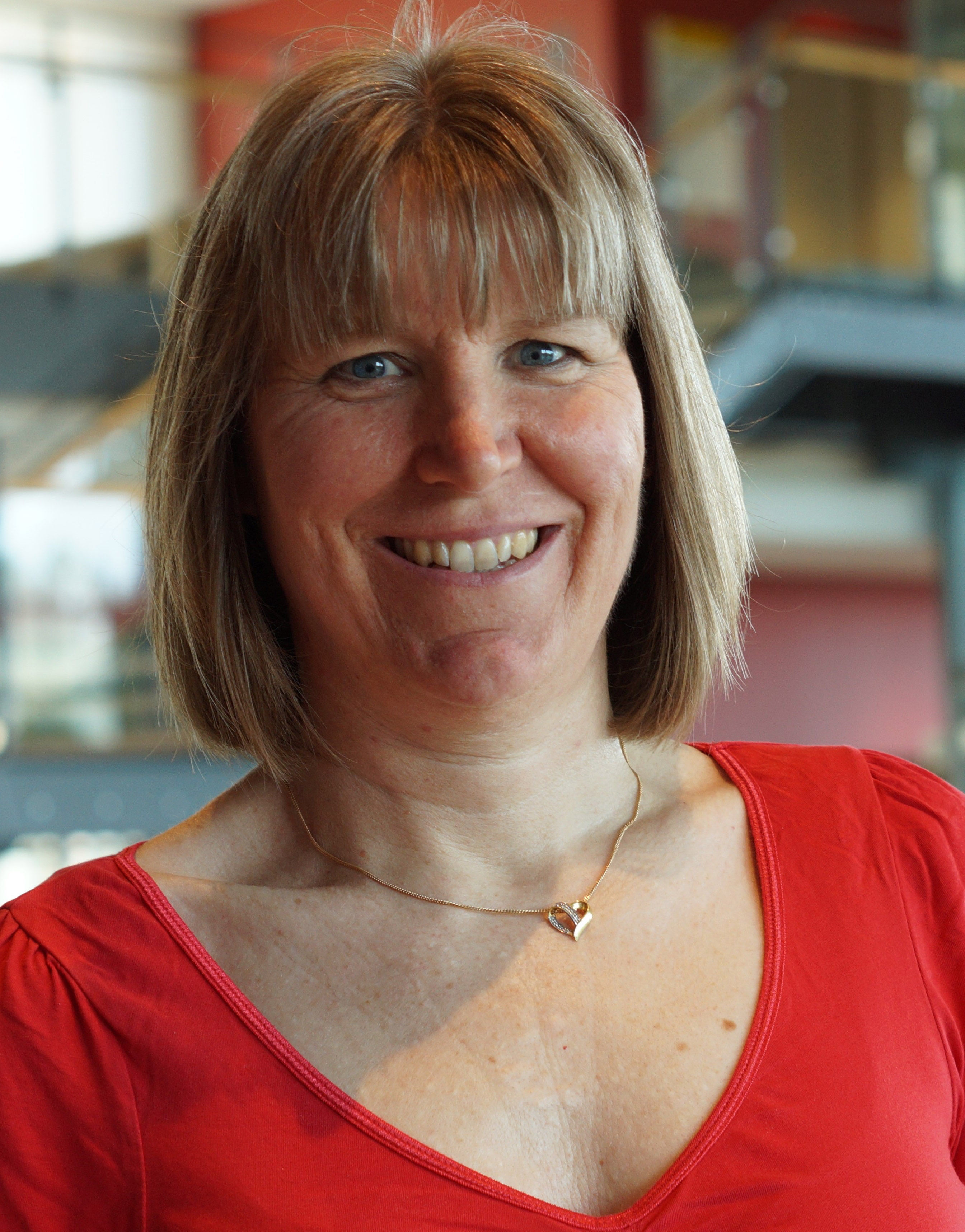Edward Knightly
Curved Beams, Flying Metasurfaces, and Emerging Capabilities for 6G
Abstract
Next generation wireless networks promise unprecedented performance by exploiting wide bandwidths available in millimeter wave to sub-Terahertz spectrum. At such frequencies, transmission is necessary highly directive in order to overcome path loss. In this talk, I will debunk two myths of such networks: the first myth is that intelligent surfaces or smooth specular-reflecting surfaces are required to overcome blocked paths via reflected paths. Instead, I will show the theory and experimental results for curving beams around obstacles. The second myth is that highly directional rooftop backhaul links are inherently immune to interception by an eavesdropper. Instead, I will show the theory and experimental results for intercepting a roof-top sub-THz backhaul link without detection by using a metasurface-equipped UAV.About the speaker
 Edward Knightly is the Sheafor–Lindsay Professor of Electrical and Computer Engineering and Computer Science at Rice University. He received his Ph.D. and M.S. from the University of California at Berkeley and his B.S. from Auburn University. He is an ACM Fellow, an IEEE Fellow, and a Sloan Fellow. He received the IEEE INFOCOM Achievement Award, the Dynamic Spectrum Alliance Award for Research on New Opportunities for Dynamic Spectrum Access, the George R. Brown School of Engineering Teaching + Research Excellence Award, and the National Science Foundation CAREER Award. He won eight best paper awards including ACM MobiCom, ACM MobiHoc, IEEE Communications and Network Security, and IEEE INFOCOM. He serves as an editor-at-large for IEEE/ACM Transactions on Networking and serves on the scientific council of IMDEA Networks in Madrid and the scientific advisory board of INESC TEC in Porto. He served as the Rice ECE department chair from 2014 to 2019.
Edward Knightly is the Sheafor–Lindsay Professor of Electrical and Computer Engineering and Computer Science at Rice University. He received his Ph.D. and M.S. from the University of California at Berkeley and his B.S. from Auburn University. He is an ACM Fellow, an IEEE Fellow, and a Sloan Fellow. He received the IEEE INFOCOM Achievement Award, the Dynamic Spectrum Alliance Award for Research on New Opportunities for Dynamic Spectrum Access, the George R. Brown School of Engineering Teaching + Research Excellence Award, and the National Science Foundation CAREER Award. He won eight best paper awards including ACM MobiCom, ACM MobiHoc, IEEE Communications and Network Security, and IEEE INFOCOM. He serves as an editor-at-large for IEEE/ACM Transactions on Networking and serves on the scientific council of IMDEA Networks in Madrid and the scientific advisory board of INESC TEC in Porto. He served as the Rice ECE department chair from 2014 to 2019.
Anna Brunström
Protocols, Architectures and Performance in a 5G and Beyond Network Landscape
Abstract
In this talk we first explore the evolution of 5G networks in the wild based on large scale measurement campaigns in Italy and Sweden. We illustrate different deployment alternatives and examine performance in terms of both basic network quality-of-service parameters and application performance metrics. Setting the stage also for the second part of the talk that explores the ongoing trend towards network convergence and the access traffic steering, switching & splitting (ATSSS) function that has been introduced in 5G networks to allow simultaneous use of 3GPP cellular access and non-3GPP access (e.g. WiFi). We highlight some of the key challenges involved in taking advantage of such functionality and discuss the protocols involved and how performance is affected by core mechanisms such as scheduling and congestion control. We end with an outlook towards the future and 6G.About the speaker
 Anna Brunstrom received a Ph.D. and M.Sc. in Computer Science from College of William & Mary, VA, in 1996 and 1993, respectively. She received a B.Sc. in Computer Science and Mathematics from Pepperdine University, CA, in 1991. She joined the Department of Computer Science at Karlstad University (KAU), Sweden, in 1996, where she is currently a Full Professor and Head of the Distributed Intelligent Systems and Communications Research Group (DISCO). She is also a part-time Distinguished Researcher in the Institute of Software Engineering and Technologies (ITIS) at University of Malaga, Spain. She has a background in distributed systems, but her main area of work over the last years has been in computer networking with a focus on Internet architectures and protocols, techniques for low latency communication, multi-path communication and design and performance evaluation of mobile systems including 5G/6G.
Anna is the scientific director for the research profile DRIVE - Data-driven Latency-sensitive Mobile Services for a Digitalized Society – at KAU, an eight-year nationally funded research initiative together with industry. She has also lead numerous other collaborative research projects within the area and has been involved as KAU PI in several European Framework projects within mobile communication, where she is currently the KAU PI within the 6G-PATH Horizon Europe project. She is actively engaged in standardization within the Internet Engineering Task Force (IETF) and served as a working group chair for the RTP Media Congestion Avoidance Techniques (rmcat) working group from 2015-2023. She has authored/coauthored ten book chapters and over 200 international journal and conference papers
Anna Brunstrom received a Ph.D. and M.Sc. in Computer Science from College of William & Mary, VA, in 1996 and 1993, respectively. She received a B.Sc. in Computer Science and Mathematics from Pepperdine University, CA, in 1991. She joined the Department of Computer Science at Karlstad University (KAU), Sweden, in 1996, where she is currently a Full Professor and Head of the Distributed Intelligent Systems and Communications Research Group (DISCO). She is also a part-time Distinguished Researcher in the Institute of Software Engineering and Technologies (ITIS) at University of Malaga, Spain. She has a background in distributed systems, but her main area of work over the last years has been in computer networking with a focus on Internet architectures and protocols, techniques for low latency communication, multi-path communication and design and performance evaluation of mobile systems including 5G/6G.
Anna is the scientific director for the research profile DRIVE - Data-driven Latency-sensitive Mobile Services for a Digitalized Society – at KAU, an eight-year nationally funded research initiative together with industry. She has also lead numerous other collaborative research projects within the area and has been involved as KAU PI in several European Framework projects within mobile communication, where she is currently the KAU PI within the 6G-PATH Horizon Europe project. She is actively engaged in standardization within the Internet Engineering Task Force (IETF) and served as a working group chair for the RTP Media Congestion Avoidance Techniques (rmcat) working group from 2015-2023. She has authored/coauthored ten book chapters and over 200 international journal and conference papers